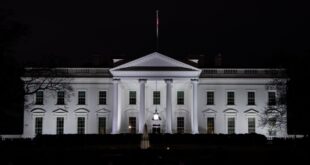Tim Mak
The Middle East is on a knife’s edge, thanks to a lunatic ISIS and a rising Iran. For American arms-makers, that means only one thing: opportunity.
War in Yemen. The continued threat of ISIS. Ongoing conflict in Iraq and Syria. Increasing Iranian influence. As America’s Middle Eastern allies watch their neighborhood burn, the U.S. defense industry is viewing increased instability as a money-making opportunity.
An unintended consequence of growing Iranian clout in the Middle East—punctuated most recently by a framework nuclear deal—has been the Obama administration’s decision to ease Gulf ally concerns by approving more sales of U.S.-made weaponry.
According to defense industry sources, inquiries for their product are way up. So while the region is a disaster for the Gulf states, the recent chaos is a timely godsend for the American defense industrial base—which due to congressional spending cuts is badly in need of customers.
“If you stop building product, you’re potentially shedding employees—and that’s constituents. That’s taxpayers. That’s your brother, your cousin, your friend—that doesn’t have a job because of a smaller defense budget. But if you can add foreign sales…” said a top defense industry lobbyist. “It’s ensuring a continuation of our industrial base and employment here.”
Over the last eight months, the State Department has approved foreign military sales of Hellfire missiles to Egypt, rocket launchers to Jordan, M1A1 Abrams tanks to Iraq, Patriot air defense systems to Saudi Arabia, and artillery rocket systems to the UAE.
Defense industry officials are signaling to Congress that they expect a flood of new weaponry requests from Arab allies in the coming days, according to The New York Times. In 2012-2013, the United States sold nearly a billion dollars worth of weaponry to Saudi Arabia, and half a billion to Qatar, for example. This upcoming year’s totals could be much, much higher.
“There [is] a sharp increase in sales” to Gulf States, said Anthony Cordesman, the Arleigh A. Burke Chair in Strategy at the Center for Strategic and International Studies. “You not only see that they’re accelerating, but they’re accelerating far faster than Iran can afford to match.”
In a new report published Tuesday, Cordesman writes that Iran’s defense spending is dropping as a percentage of its GDP, even as Gulf state defense figures increase.
The accelerating weapons imports by Gulf states “is a reaction to Iran,” said Cordesman, and has “accelerated over the last four, five years. It has continued to evolve—not just in dollars—[to involve] some of the most sophisticated [weapons systems] in the world,” especially in missile defense and airpower.
The Middle East accounts for approximately 32 percent of the United States’ weapons export market. From 2010 to 2014, the United States exported $43 billion in arms worldwide, according to the Stockholm International Peace Research Institute.
And arms imports to Gulf Cooperation Council states increased 71 percent from 2010 to 2014, as compared to the previous five-year period, the SPRI notes.
This comes as the Houthis have strengthened their hand in Yemen, ISIS has continued to be a threat in Syria and Iraq, and the Russians appear set to sell the powerful S-300 air defense system to Iran.
“It was just a matter of time on Iran getting the S-300, especially with Russia’s economic situation,” said a senior defense industry source. “This will add to a stronger demand signal for higher-capability systems in the region, among our friends and allies.”
At a defense industry conference in Abu Dhabi this year, the appetite Gulf Arab states have for new weaponry was enormous and growing, according to a report from the Foundation for the Defense of Democracies.
“I think what we can say is that it almost doesn’t matter if Iran goes nuclear, because what we see is a flood of weapons into the region because Iranian hegemony has gone unchecked. So, it has made all these countries nervous nonetheless.”
It’s an irony of the Iranian nuclear negotiations: Though the Obama administration may be able to delay the production of a nuclear weapon, it has had to flood the region with conventional weaponry to assuage the fears of Gulf allies.
“This is one of the unintended consequences of this Iranian nuclear threat—you have a now far better armed Middle East than before, with more arms than ever before,” said Jonathan Schanzer, vice president of research at the Foundation for Defense of Democracies. “Even if you don’t have a nuclear Iran, you will have a number of militaries that are far more muscular than they were a decade ago.”
“A lot of military preparedness is just about having time in battle,” Schanzer noted. In the recent campaign in Yemen, the Emirates, Jordanians, and Saudis have all mobilized to fight the Houthis.
As Gulf Cooperation Council countries prepare to come to a summit at Camp David next month, they’ll be sure to have their hand out, asking for more weaponry.
“You are going to see an increase in the level of material support for our Gulf allies,” Representative Adam Schiff, the top Democrat on the House Intelligence Committee, told The Daily Beast. “It’s going to be very important for us to work in concert with our allies, and at times serve as a force of restraint [to] ensure that the support that we provide doesn’t serve to inflame the region, rather than be a check on Iranian ambition.”
Would increased American armaments to the region further destabilize the Gulf? Schanzer believes that Iranian influence fosters instability and that a conventional arms race is dangerous for the region.
“I think what we can say is that it almost doesn’t matter if Iran goes nuclear, because what we see is a flood of weapons into the region because Iranian hegemony has gone unchecked. So, it has made all these countries nervous nonetheless,” Schanzer said.
Not so, says the chairman of the Senate Armed Services Committee, Senator John McCain.
“The region could not be more destabilized,” McCain told The Beast. “This is an all-time low in the confidence of the United States of America… The Gulf states have no confidence in us. The Sunni Arab world has no confidence in us. I know that from talking to these leaders directly.”
So for the defense industry: The immediate cash windfall may be shortsighted; ongoing Gulf anxiety is based on mistrust of the United States—which could sink future deals.
“It’s not clear what can be asked for and offered right now that is going to restore the confidence that has been lost with our GCC allies… because frankly our allies are taking a very cynical view of this administration and the pledges they are making. It’s going to be very difficult to restore that kind of trust… in the short time we have left in this administration,” said Ali Tulbah, a managing director at McLarty Associates and an expert on U.S.-GCC relations.
Indeed, defense industry insiders worry that in the long term Gulf allies may lose faith entirely with the United States and turn to countries like Russia and China for lucrative arms deals—leaving “Big Defense” in the dust.
“It’s a double-edged sword: We’ve certainly seen an uptick in the number of inquiries for military equipment,” said a defense industry lobbyist who specializes in military equipment.
“What I have noticed is that given this administration’s effort or lack thereof… there are a lot of Gulf states that are not sure that Americans are going to be over there and they are starting to look for other sources of defense products than strictly from America.”
Russia has a thriving weapons export market as well. In 2012-2013, it sold $58.8 million in weapons to Iran and $1.2 billion in weapons to Syria.
But even as conventional American weapons flood into the region, close U.S. ally Israel is surprisingly at peace with the rising military power of Gulf states.
“We live in a weird historical moment when, for the first time since the founding of Israel and with the exception of Iranian military assets in Syria, the Israelis would prefer to have competent Arab militaries on their borders rather than lawless regions,” said Omri Ceren, managing director at The Israel Project, a pro-Israel organization.
The United States has committed in law to help Israel maintain its “qualitative military edge” over potential foes—but with a rising Iranian threat Israel appears less concerned about strengthened Gulf militaries.
“We’ve been hearing a lot of whispering about the Gulf countries, specifically Saudi Arabia, growing closer to Israel over time—the enemy of my enemy is my friend… or at least not my enemy,” Schanzer said.
However, he quipped, “It’s not as if the Saudis are going to turn around and suddenly start celebrating Hannakuh in Tel Aviv.”
Source: The Daily Beast
 Geostrategic Media Political Commentary, Analysis, Security, Defense
Geostrategic Media Political Commentary, Analysis, Security, Defense





